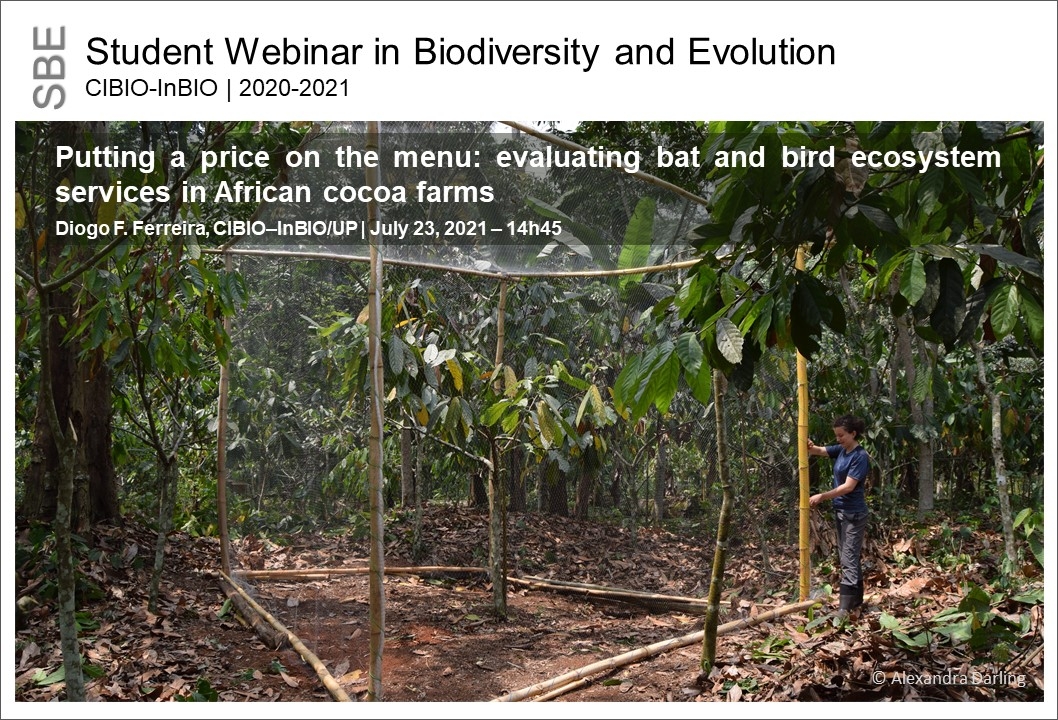Putting a price on the menu: evaluating bat and bird ecosystem services in African cocoa farms
23 Jul 2021 - Diogo F. Ferreira, CIBIO-InBIO/UP | 14h45

STUDENT WEBINAR IN BIODIVERSITY AND EVOLUTION
Sub-Saharan Africa is home to one of the largest areas of tropical rainforest in the world. About 70% of the world's chocolate is grown in Africa and an increase in production is expected in the next 20 years. Cocoa insect pests can cause losses of hundreds of millions of euros annually; however, no studies from Africa have yet addressed the role of flying vertebrates as pest suppressors in cocoa farms. By establishing an exclusion experiment in which we used netting to block the access of bats and birds to cocoa trees for one year, we quantified how the consumption of insects by these taxa affected arthropod communities, herbivory, and cocoa crop yield. Our preliminary dietary analysis based on metabarcoding results from bat and bird faecal samples showed that 5 bat and 11 bird species consumed the main pest of cocoa in Cameroon (Hemiptera: Sahlbergella singularis). Hence, we hypothesized that these taxa would contribute to the suppression of cocoa pests and thus increase crop yields. Overall, our exclusion experiment showed that control trees (trees without netting) had almost 30% more pods than excluded trees, with differences being dependent on farm management (e.g., degree of shade cover). Responses of arthropod communities were order-specific, with some important pest groups such as Mealybugs and Hemiptera being more abundant in exclosures compared with control trees. Our results show the potential of African bats and birds as pest suppressors in cocoa farms but highlighted that their role is dependent on the arthropod communities present on trees, farm conditions and environmental factors. Understanding how these interactions between species are connected to productivity and farm characteristics is critical to correctly implement fine- and large-scale management recommendations that help farmers improve yields while at the same time contribute to biodiversity conservation.
Diogo F. Ferreira is a Ph.D. student at the University of Porto’s Research Centre in Biodiversity and Genetic Resources. Since traveling to the Amazon to sample bats in 2014 for his Master’s thesis in Conservation Biology, his research interests shifted mainly to bats and their conservation. Diogo has worked on bat conservation and ecology projects across the world, including Portugal, Spain, Germany, Brazil, Kenya, Cameroon and Equatorial Guinea. For his Ph.D., Diogo is studying bats and pest suppression in Cameroon using both mist-netting and bioacoustics, with the goal to promote sustainable cocoa plantations through bat ecosystem services.
[Host: Hugo Rebelo, Bat Ecology - BATECO]